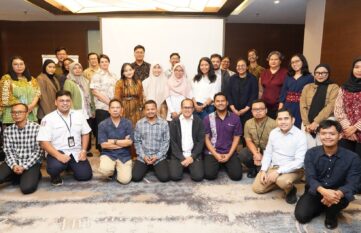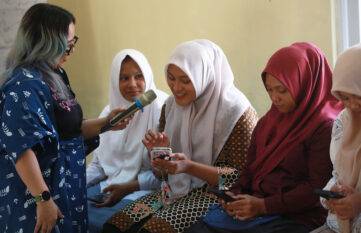Internet for everyone
At a glance
Access to broadband and Internet services remains a particular hurdle in the development of many African countries. Although sub-Saharan Africa has the highest user growth rates in the world, only a good third (34%) of the approximately 1.3 billion people in Africa regularly use the Internet. The reasons for this, apart from a lack of infrastructure, continue to be the comparatively high cost of Internet services, which are not affordable for large sections of the low-income population.
In contrast, there is great potential in high Internet usage rates for the economic development of countries. Recent research by the ITU (2019) shows that expanding broadband coverage by ten percent in African countries would lead to a 2.5 percent increase in gross domestic product (GDP) per capita.
Policies and regulations can promote digital transformation: The Alliance for Affordable Internet (AI4I), for example, concludes that better regulation, among other things, leads to price reductions and thus facilitates the participation of the population in the digital transformation. It is therefore important to provide policymakers and regulators in Africa with tools to advance the successful implementation of the African Union (AU) Digital Transformation Strategy in Africa, while at the same time realizing their individual digital transformation goals.
Our approach
The Smart Africa Digital Academy – SADA for short – starts precisely here and provides the necessary knowledge for the relevant actors to promote this digital transformation in Africa. SADA reaches its target groups with learning programs; one main component is digital courses developed in cooperation with the World Bank. Coupled with classroom training, we aim to reach 70,000 African users in regulatory and policy contexts (civil servants, representatives of business and civil society) with SADA learning by September 2023. The trainings under SADA aim to improve participants’ skills for designing digital transformation and drafting inclusive, gender-sensitive, and climate-smart ICT regulations.
SADA provides relevant model templates on digital transformation and makes best practices and learning experiences from the SADA learning network available to states and organizations for revising or drafting their national ICT regulations.
SADA is based on close cooperation between the Smart Africa Alliance and atingi, the digital learning platform of German development cooperation. Learning opportunities will consist of a mixture of on-site training of key personnel on the one hand and scalable digital learning units on the other, which will be available at flexible times. SADA’s methodological approach is two-pronged: (1) more targeted learning and exchange opportunities to build the skills of decision-makers in regulatory bodies and promote the framework for inclusive, lower-cost Internet access, and (2) broader, low-threshold learning opportunities to a wider group of people to additionally reach the decision-makers of tomorrow and thus permanently anchor the goal of digital transformation.

Our goal
1. 70 % of the participants of the SADA trainings developed in the framework of the project confirm that their competences regarding the design of digital transformation and the elaboration of ICT regulations, taking into account inclusive, gender-sensitive and climate aspects, have improved by at least 1 point on a scale of 1-5.
2. Four countries have applied SADA’s blueprints on digital transformation and the best practices and learning experiences of the SADA Learning Network in revising or drafting their national ICT regulations regarding inclusive and affordable internet access.
3. As a catalyst for initiatives in the field of digital transformation and ICT regulations, SADA has concluded five cooperation agreements with relevant international actors and associations.




